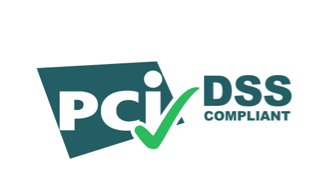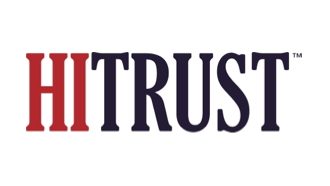Security & Privacy Risk Assessment
Remove the guesswork around Cybersecurity risk
Industry Challenges
Risk Mitigation
Identify and mitigate risks to reduce cyber risk exposure.
Resource Scarcity
Lack of resources in managing cyber risks.
Adhere to growing regulatory compliance needs.
Rapid Transformation
Adhering to compliance with rapid changes in the cloud, technologies, and other DX activities.
Monitor and Validate Privacy Program
Ongoing monitoring and testing of the privacy program, including monitoring and tracking of regulatory change.
Assessment &
Remediation Services
We understand how difficult it is to keep up with the complex and ever-evolving cyber risk landscape. Our security and privacy industry veterans use a business-aligned approach to pinpoint the risks that are relevant to your organization. We go beyond compliance and benchmark against the best frameworks to accelerate the maturity of your Cybersecurity program.

Risk Assessment
Evaluate relevant security and privacy risk impacting your business.

Benchmarking, Mitigation & Monitoring
Align your business risk against the industry standards to enable effective risk-based decision making.

Security and Privacy Roadmap
Business-focused prioritized roadmap to ensure security safeguards are implemented as the risks and the threats evolve.

Gap Remediation
Provide expert assistance in remediating identified deficiencies.










Our Approach
Identify all compliance and regulatory requirements based on your business.
Adapt to framework that meets your organization business needs.
Perfom gap analysis to identify control deficiencies.
Create stategies and develop action plans for minimizing overall risks.
Identify all compliance and regulatory requirements based on your business.
Adapt to framework that meets your organization business needs.
Perfom gap analysis to identify control deficiencies.
Create stategies and develop action plans for minimizing overall risks.
Case Studies
FAQs
Let us help you with any inquiry you might have.
How do you Conduct a Security Risk Assessment?
There are several different methods for conducting a risk assessment. Some of the most common include auditing, application security testing, and penetration testing. Organizations should conduct assessments of both electronic and non-electronic assets.
In addition to identifying vulnerabilities, security risk assessment should consider the human factor, as well as physical threats. Threats can be malicious, accidental, or both.
Risk assessment should begin with determining the scope and goals of the project. It should also involve all relevant stakeholders. Once this done, the assessment can perform. Depending on the level of complexity, it can do in-house or by a third party.
What are the Four Fundamentals of Security Principles?
The four fundamental security principles are availability, integrity, confidentiality, and authentication. Each must implement and maintained at all times to ensure consistent data security.
Availability is about ensuring that data is available when needed. Authentication is about identifying a person’s actions. Access control is about allowing access only to the people who have the proper permissions. Confidentiality is about ensuring that information is not disclose without authorization.
What Are the Three Approaches in Cyber Security Risk Assessment?
An effective cyber security approach requires a comprehensive solution that covers the entire IT infrastructure. The most important element of a comprehensive cyber security strategy is awareness training.
To reduce the likelihood of security violations, employees must educate about cyber security topics. They should also inform about company policies and incident reporting procedures.
In addition, users should have the latest anti-malware software installed on their computers. Secure passwords should follow industry-approved standards. Users should change their passwords at regular intervals.
What Are the Types of Security Risk Assessments?
There are many different types of security risk assessments. Some include vulnerability assessment, threat assessment, and security audit. You should understand the difference between each type before deciding which one is right for your organization.
A formal security assessment involves a team of experts who are focus on the specific issues that need to addressed. The process can take weeks. It requires full-time team members.
Some types of assessments involve specialized access, such as penetration tests and vulnerability assessments. A security assessor will review the company’s systems and policies for vulnerabilities. They might find insecure business processes, weak passwords, and firewall configurations.
What is Digital Risk Management?
Digital risk management is a comprehensive process that is vital for protecting your business from digital disruption. It enables you to identify, measure, and monitor the risks associated with your IT environment.
Risks can be internal, external, third party, or operational. Each of these types of risks have their own implications on the business. Your company needs to prioritize them according to their level of operational and financial risk.
Digital risk management is the best way to protect your business from any kind of disruption. With this in mind, you should start developing a comprehensive and strategic approach. Once you have developed a risk model, you can monitor your risks over time. This will help you determine if your response plans need updating.
What is Security Risk Assessment Checklist?
A security risk assessment checklist can use by organizations to identify threats to their assets. These include physical and electronic assets. Performing a comprehensive risk assessment will help your organization reduce downtime and cost.
A security risk assessment checklist can break into three basic stages. Each stage can be a separate activity or a combined effort. Generally, an in-depth assessment includes an asset inventory, procedures to documented, and documentation of network diagrams.
Depending on the size of your company and the nature of your business, a comprehensive risk assessment may be a good idea. Some businesses, however, are too small to invest in a complete security assessment. In cases like this, the best approach is to use a security service provider. Choosing an experienced company can mean the difference between success and failure.
What is the Difference Between Policies and Procedures?
A policy is a formal document that describes a course of action or a goal. It is usually a concise statement that explains why a decision has to made, what its objectives are, and how it will achieve.
Procedures are an outline of a normal process for completing a particular mission. Examples of procedures are equipment operation, material ordering, and emergency preparedness.
What is the Process of Security Management?
Security management is a process that protects an organization’s assets, such as buildings and systems, as well as its people. It addresses issues such as identifying risks, determining the best security measures and implementing them.
A major goal of security management is to protect customer data. When a company’s secrets are compromise, trust and revenue can lose.
In addition to protecting corporate data, information security management also helps to strengthen a company’s ability to resist cyber-attacks. This process provides a framework for managing and securing all types of information, from sensitive documents to data stored on databases.
Using an asset identification system is a vital part of effective security management. This system tracks the life cycle of an asset within the organization and ensures that sensitive data protected.
What Are the Key Principles of Security?
It is important to understand the basic principles of information security. These guiding principles are design to make it easier to identify the various types of attacks and defend against them.
The best security practices include a robust data security infrastructure. The use of encryption and cryptography helps protect information from disclosure. It also prevents unauthorized modification of information and accidental destruction.
Another important security concept is the availability of information. This ensures that the system is available to authorized parties at all times. Also known as a denial of service, failure to meet this goal can hinder normal operations.
Another basic principle is the separation of duties. This is particularly important in the case of computer security systems. Unless an organization has a legal or regulatory requirement to store and process sensitive data, it should not keep it for any longer than necessary.
A third security concept is the non-repudiation rule. An attacker should deny access to a message unless the sender specifically requests it.
The CIA has created a set of guidelines to help organizations implement information security. These guidelines include the use of a firewall and load balancers.
One of the most important security principles is the Principle of Least Privilege. This relates to ensuring that people only have the privilege to access information that needed for their job.





